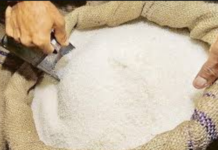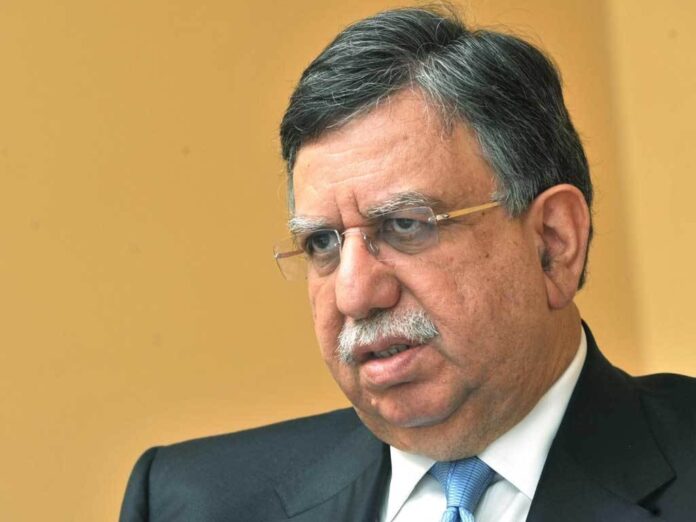ISLAMABAD: Federal Minister for Finance and Revenue Shaukat Tarin has directed the officials concerned to review the entire supply chain from farmer to end-consumer for minimising difference between wholesale and retail prices of basic commodities.
During the meeting, Pakistan Bureau of Statistics (PBS) briefed the finance minister about data collection methodology and updated on the recent changes incorporated to reflect price variation between wholesale and retail levels across different cities.
Tarin underscored the need to build six million metric tons of strategic wheat reserves, as the total public sector stocks depleted to less than three weeks of consumption level.
However, the strategic reserves will have to be built by importing the commodity due to estimated production of slightly over 26 million metric tons of wheat this year, which is already three million tons short of coming year’s total consumption requirements, according to the proceedings of the NPMC.
The meeting was informed that the total wheat stocks across the country were 647,687 metric tons as of last week, which at current consumption levels would last for hardly two-and-a-half weeks. By the end of April, the stocks would further deplete to 384,000 metric tons – the time when harvesting of the new crop will be in full swing.
Punjab’s stock was less than 400,000 metric tons, Sindh about 57,000 metric tons, Khyber-Pakhtunkhwa over 58,000 metric tons and PASSCO less than 140,000 metric tons, according to the NPMC proceedings. The Balochistan government did not any stock of wheat.
The finance minister observed that in order to ensure price stability and meet the requirement, there was a need to maintain six million metric tons of wheat reserves in the country.
The finance minister also emphasised the need for extending market coverage by including more cities and local areas including Ramzan Sasta and Sahulat Bazaars. “The data must represent and reflect prevailing price trends accurately,” he said.
Tarin also sought a briefing from the representatives of the provincial governments regarding efficacy of Ramzan Bazaars which have been set up to provide maximum relief to the masses during the holy month.
An official announcement, quoting provincial administrations, said the response has been very encouraging as people are making regular purchases and taking benefit of reduced prices of basic commodities.
Tarin urged the respective provincial administrations to chalk out a firm plan for strict monitoring of prices and availability of stock of basic commodities at Ramzan Bazaars to facilitate the general public in Eid shopping which largely takes place during the last week of the holy month and also directed the provincial governments to keep the prices of basic commodities in check during the Eid holidays.
The Utility Stores Corporation (USC) managing director (MD) updated the NPMC that all basic commodities are well-stocked across the chain of USC outlets including wheat flour, sugar, ghee and pulses at subsidised prices in compliance with the directives of the prime minister.
He further informed that maximum buying across USC outlets takes place during the second half of the day. He requested the general public to visit Utility Stores outlets during morning hours to avoid large queues.
It may be mentioned here that Shaukat Tarin will chair the session of the Economic Coordination Committee (ECC) to discuss a six-point agenda on tomorrow.
The ECC deliberate upon the 40 per cent payments to the independent power producers (IPPs), while Energy Ministry will present its report in this context.
Moreover, the participants of the session will discuss the provision of 100 per cent subsidy to the export industries on the regasified-liquified natural gas (RLNG).
Grants related to housing, law and disabled persons will also come under consideration in the meeting.
























